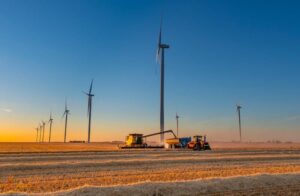Households in Victoria could soon be required to pay up front for a new connection to the gas network, under proposed rule changes that would deliver a fresh blow to the future of the fossil fuel in the state and a clear signal to consumers to electrify.
In a draft decision on the Gas Distribution Code of Practice, published on Tuesday, the Essential Services Commission proposes a new framework for network connection obligations and charges as Victoria embarks on its Gas Substitution Roadmap.
Among the key changes being put forward by the ESC is a proposal for new customers to pay upfront charges when a new gas connection is installed.
According to the draft decision, the move would bring gas networks in line with electricity and water, which already require up-front payments for new connections.
As the ESC notes, the current status quo means that all gas customers contribute to the cost of new connections paid through network tariffs.
ESC chair Kate Symons says the move also aims to remove any “inefficient incentives” that might be encouraging new gas uptake, in the face of the state government push to phase out residential electrification.
“We are proposing to remove inefficient incentives for new gas connections, by bringing them into line with the current practice for electricity and water connections,” Symons said on Tuesday.
“This will support Victoria’s energy transition to net zero emissions and support customers during the transition from fossil gas to electricity.”
Interestingly, the ESC’s proposed rule changes appear designed to close some of the loopholes left open by state Labor’s ban on gas connections in new homes and government businesses, that will come into play on the first day of January in 2024.
As some gas network companies have been quick to point out, the gas ban only applies to developments and residential home builds that need a planning permit that have not already been submitted or approved by 1 January 2024.
This, explains the ESC, leaves “substantial numbers” of new connections to the gas network free to go ahead over the next few years and locks households into use of the costly and polluting fossil fuel through the purchase of new gas appliances.
“We expect that our changes will help reduce the extent of the stranded assets in the Victorian gas network at the margin,” the draft documents say.
“In the transition to electrification, there is a risk that new customers might switch to all-electric systems before gas distributors are able to fully recover the costs associated with those new connections to the network.”
The issue over the so-called death spiral for gas networks is a critical one for the industry and consumers, because one of the unresolved problems of the push to electrification and to kick gas out of the home is who gets to bear the cost of stranded gas pipelines and other infrastructure.
Earlier this month, the Australian Energy Regulator warned gas distribution companies to brace for “rapid change” to the policy settings governing how networks can recoup their costs, while also deciding “to not make sector wide changes” to pricing rules, just yet.
Happily, the Victorian regulator is stepping up to the plate.
As well as changing rules around who pays for new connections to a dying network, the ESC is also seeking to remove the current obligation to connect customers from the Code of Practice.
The regulator says that under current rules, distributors must connect a customer to the gas network when requested to do so, provided certain requirements are met – an obligation it notes was “premised on the efficiency of the continuous expansion of gas networks to urban fringes.”
“Considering recent government regulatory developments and almost unanimous stakeholder views, we consider removing the obligation to connect customers in the minor or infill extension area a non-controversial decision,” the draft document says.
“The obligation may also clash with upcoming changes to the Victorian Planning Provisions which will require new homes and subdivisions to be all-electric.”
Beyond the proposed changes under review, the ESC says it has also identified other issues related which “intersect with evolving government policy and gas regulatory reforms” that it will address in the future.
These include removing barriers and improving processes for customers who wish to permanently disconnect from the gas network and reviewing the technical requirements for operating gas networks to account for decreasing gas demand.
For now, however, Symons says the ESC is seeking feedback from stakeholders on the proposed Gas Distribution Code of Practice and is aiming to prepare a final decision in early 2024.
The draft decision is available on the Engage Victoria website. It includes the proposed Gas Distribution Code of Practice, a comparison between the current code and the new draft code and proposed updates to gas distribution licences.








